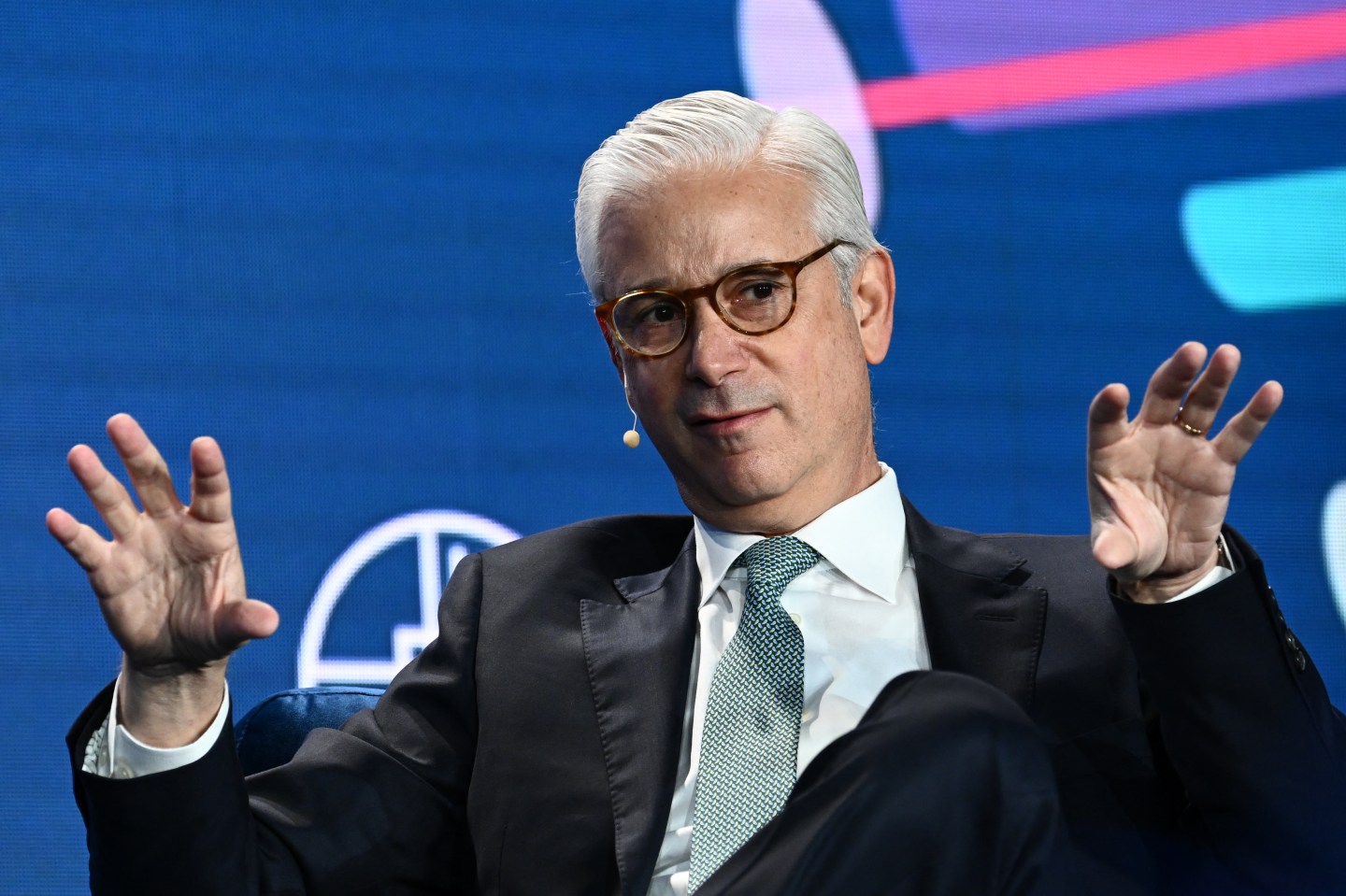Charlie Scharf inherited one of the toughest jobs in corporate America when he became CEO of Wells Fargo in 2019. His mandate? Rebuild a disgraced brand, navigate regulatory shackles, and restore faith in a bank many thought was beyond saving. Six years later, he’s largely done it. The Federal Reserve’s decision in June to lift the asset cap—a penalty that had hobbled Wells for years—marked the clearest sign that the turnaround worked, writes my colleague Shawn Tully.
Scharf’s turnaround playbook has centered on three principles.
Discipline over flash: Trained for toughly two decades under now-JPMorgan CEO Jamie Dimon, Scharf learned to make hard calls with steadiness, not showmanship. That discipline has driven cost cuts, a flatter structure, and operational fixes that pared headcount by nearly a quarter and reduced Wells Fargo’s vast real estate footprint.
Calm over charisma: Scharf leads quietly but firmly, those who know him say, lowering the temperature in tense moments while remaining uncompromising on performance.
Accountability over optics: Scharf makes clear who’s responsible for what, cuts underperformers quickly, and ties growth to measurable results. At Wells Fargo, he focused on profitable lines like investment banking and credit cards—doubling purchase volumes since 2020—while pulling back from riskier lending.
The results speak for themselves: stronger returns, regained regulatory trust, and a stock up more than 50% under his watch. And while Scharf learned plenty from Dimon’s debate-driven approach to management, it’s his mentor’s larger lesson that stuck: the difference between being a good manager and a good leader, he says, is how you inspire people to follow you into the hardest jobs because they believe in you.
Editor’s note: The deadline to apply for the Fortune Next to Lead list is Monday, Dec.1, 2025. For more information or to submit a nomination, apply here.
Ruth Umoh
ruth.umoh@fortune.com
Smarter in seconds
Effort economics. AI CEO of $8B company blasts 38-hour workweek: ‘Mind-boggling' to think that’s success
Bankruptcy to beauty. Before Lush’s success, its co-founder faced homelessness and bankruptcy
Strategic idleness. The best leaders have know how to be ‘actively’ lazy
Leadership lesson
Jamie Dimon on CEO longevity: “Every day. Every meeting [I give it my all]...when I go to a meeting, I’ve done the pre-reads and you get 100% of my attention. 100%.”
News to know
An Amazon Web Services outage on Monday has disrupted dozens of major websites and apps. CNBC
San Francisco is rebounding, fueled by the AI boom. Crime is down, and homeless encampments have declined across the city. WSJ
Donald Trump reportedly told Volodymyr Zelenskyy to accept Putin’s terms or face Russian destruction. FT
Wall Street is bracing for more lending blow-ups, with banks and private-market giants on alert for the next hidden risk. Economist
Salesforce CEO Marc Benioff apologized after falling for the National Guard in San Francisco. NYT












